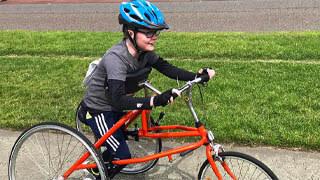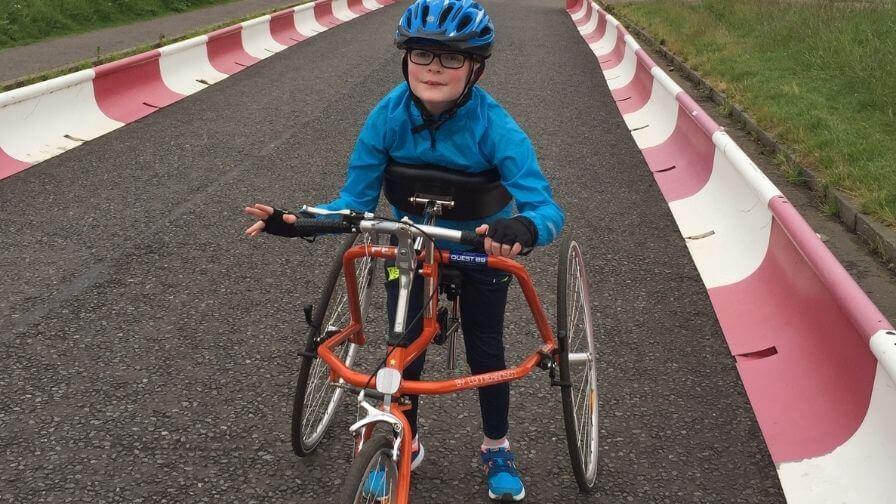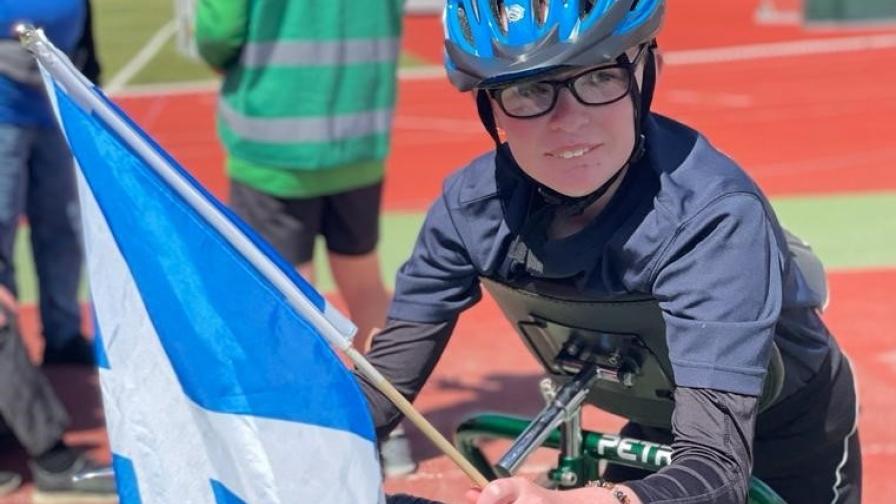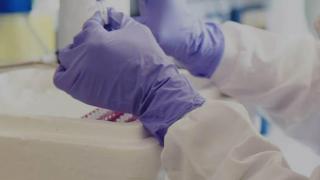breadcrumb navigation:
- Home /
- Research /
- Family stories /
-
current page
Ian's story - Frame Running
Ian's story - Frame Running
Published on
Updated:

Ian's story
Frame Running
Thankfully, Ian's fine motor skills and speech are not affected, and he excels in areas such as language and comprehension. But the family’s routine includes 30 minutes of stretching exercises every day before school to help Ian’s stiff muscles. He uses walking aids and, part of the time, a wheelchair.
Ian has cerebral palsy. He knows he has ‘special’ legs”

In August 2019, Sheena came across Frame Running (formerly known as RaceRunning), an innovative sport for people with moderate-to-severe walking impairments that involves using a custom-built tricycle without pedals.
“Ian really took to it and he loves to compete,” says Sheena.
Ian initially enjoyed regular coaching sessions as part of a pilot study led by Action-funded researchers*. His potential as an athlete quickly shone through, and his sporting future looks exciting.

Four years on, Ian continues to thoroughly enjoy all that Frame Running offers. He has now twice represented Scotland at the annual international competition for Frame Runners from all around the world, organised by the Cerebral Palsy International Sports and Recreation Association (CPISRA).
“He’s made new friendships and learned new training techniques and come back on both occasions with four gold medals and a few personal best times,” says Sheena proudly.
Ian’s family continues to be involved in an Edinburgh-based Frame Running club to enable more children like Ian to benefit.
RaceRunning gives disabled children a sense of freedom and belonging”
It is the inclusive, freeing aspects of Frame Running that make the most difference to children with disabilities, says Sheena. “When I see the children there, their faces light up. It’s giggle, giggle the whole time. Frame Running gives them physical independence and a sense of achievement,” she says.
Cerebral palsy affects many babies born very prematurely, as Ian was. It is the most common serious physical disability in children, affecting around 2,000 babies born in the UK each year.
Research that may help is therefore very important: “Finding new ways to increase physical activity in children with cerebral palsy could have long-lasting positive effects on their health and wellbeing,” says researcher Dr Ryan.
* This study was co-funded with the Chartered Society of Physiotherapy Charitable Trust. Find out more here.

Give £5 to help children like Ian
Your donation could help children like Ian by funding vital research.
